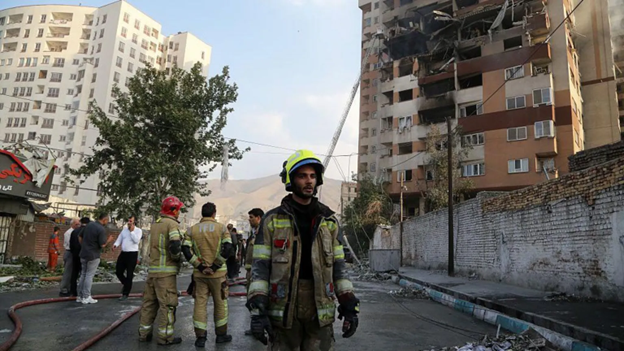How Conflict in the Middle East Threatens Global Energy Security
BLOG POSTS
Fayrouz Mahmoud


As tensions heighten between Israel and Iran, the world's focus has turned toward the immediate threat of war. But beneath the obvious headlines lies a quieter threat: the growing instability of the region’s energy infrastructure. The Middle East is home to some of the world’s most vital oil and gas routes and is at the center of global energy insecurity.
The region holds more than 48 percent of the world’s proven oil reserves and about 40 percent of its natural gas reserves, according to OPEC. These resources power economies beyond the region, from Europe and Asia to North America. In 2019, a drone attack on Saudi Aramco knocked out nearly six million barrels of oil per day, estimated to bear around 5 percent of the global supply, causing oil prices to spike by nearly 20 percent overnight.
Today, the stakes are higher. As Europe moves to end Russian fossil fuel imports because of the war in Ukraine, Egypt, the UAE, and Qatar have become even more crucial to European energy security. However, these growing ties are threatened by ongoing instability. One such chokepoint is the Strait of Hormuz, located between the Persian Gulf and the Gulf of Oman, through which nearly 20 percent of global oil flows daily. Iran has already threatened to close the strait, and rising tensions could bring this threat back into focus.
The local consequences of energy instability are even more dire. In Gaza, ongoing fuel shortages have pushed hospitals to the edge, with medical staff relying on diesel generators to power life-saving equipment. In Lebanon, much of the population lives with just a few hours of electricity each day. In Syria, the national power grid now produces less than half of its pre-war capacity, plunging millions into prolonged blackouts.
Beyond traditional fuels, these conflicts also hinder the Middle East’s shift toward renewable energy. Countries like Egypt are working to export solar and wind energy to Europe, while the UAE has become a regional leader in clean power, investing over $40 billion in renewables and hosting COP28 in 2023. But renewable infrastructure requires long-term stability, investment, and security, none of which can be guaranteed amid war.
Energy is not just an economic issue; it’s a humanitarian one. Access to fuel determines whether hospitals function, whether children attend school with lights on, and whether economies can survive. If the world is serious about transitioning to clean, stable energy sources, it must also be serious about addressing the roots of conflict that continue to undermine the region’s potential.
References
https://www.cfr.org/article/israel--iran-strikes-change-middle-east
https://edition.cnn.com/2019/09/14/business/saudi-oil-output-impacted-drone-attack
Address
No 10, Block 28023
3rd District, Obour City, Egypt
Contacts
+201100899991
Careers


Copyright © EUMENA 2024
Terms and conditions
Privacy Policy
Commercial Reg.
105282
